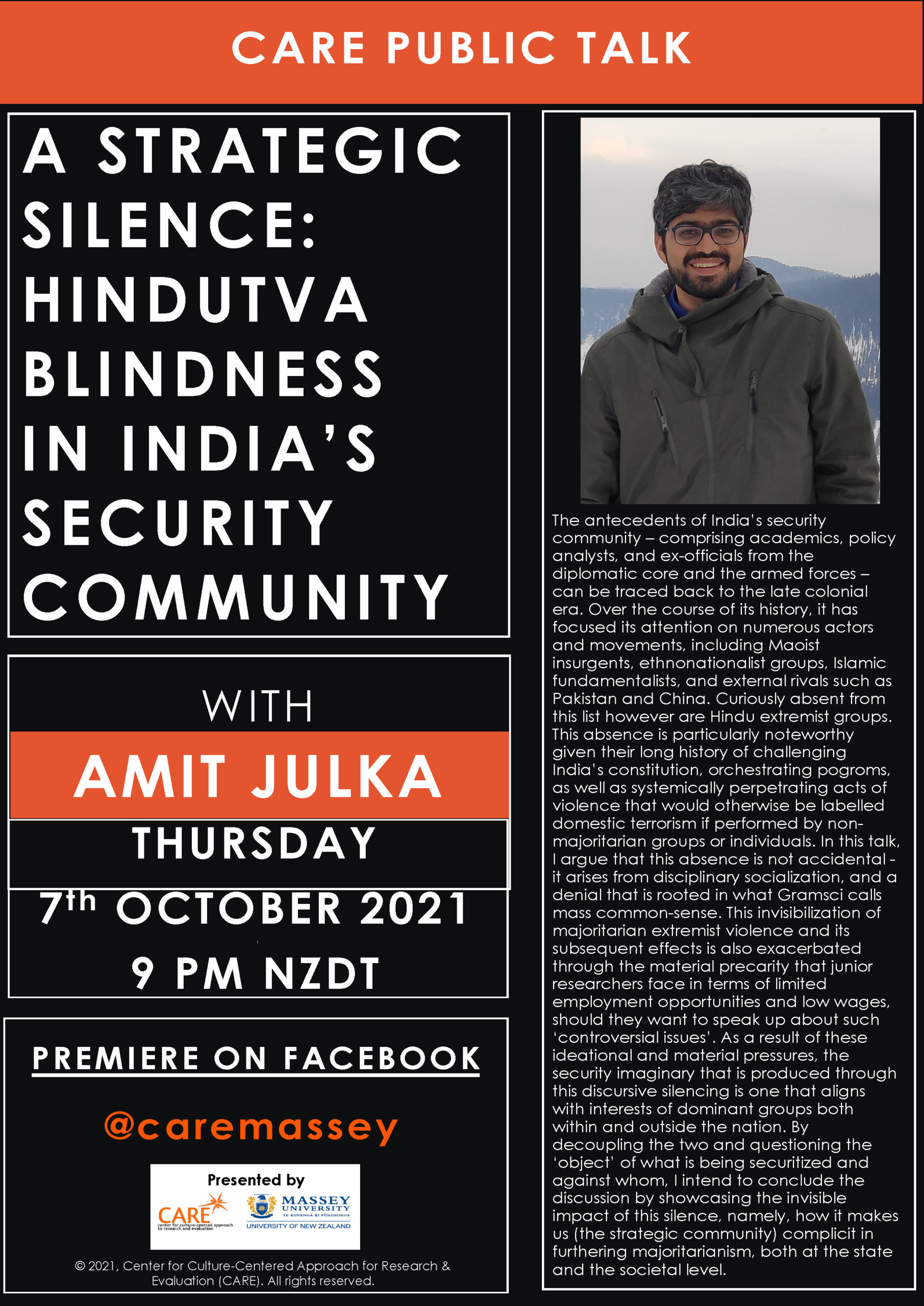CARE PUBLIC TALK- A Strategic Silence: Hindutva Blindness In India’s Security Community with Amit Julka
Thursday, 7th October 2021 @ 9 PM NZDT
Watch the PREMIERE on Facebook @caremassey

Talk Abstract:
The antecedents of India’s security community – comprising academics, policy analysts, and ex-officials from the diplomatic core and the armed forces – can be traced back to the late colonial era. Over the course of its history, it has focused its attention on numerous actors and movements, including Maoist insurgents, ethnonationalist groups, Islamic fundamentalists, and external rivals such as Pakistan and China. Curiously absent from this list however are Hindu extremist groups. This absence is particularly noteworthy given their long history of challenging India’s constitution, orchestrating pogroms, as well as systemically perpetrating acts of violence that would otherwise be labelled domestic terrorism if performed by non-majoritarian groups or individuals. In this talk, I argue that this absence is not accidental – it arises from disciplinary socialization, and a denial that is rooted in what Gramsci calls mass common-sense. This invisibilization of majoritarian extremist violence and its subsequent effects is also exacerbated through the material precarity that junior researchers face in terms of limited employment opportunities and low wages, should they want to speak up about such ‘controversial issues’. As a result of these ideational and material pressures, the security imaginary that is produced through this discursive silencing is one that aligns with interests of dominant groups both within and outside the nation. By decoupling the two and questioning the ‘object’ of what is being securitized and against whom, I intend to conclude the discussion by showcasing the invisible impact of this silence, namely, how it makes us (the strategic community) complicit in furthering majoritarianism, both at the state and the societal level.
#HindutvaBlindness #India #Hindutva #CAREMassey #MasseyUni
© 2021, Center for Culture-Centered Approach for Research & Evaluation (CARE). All rights reserved
